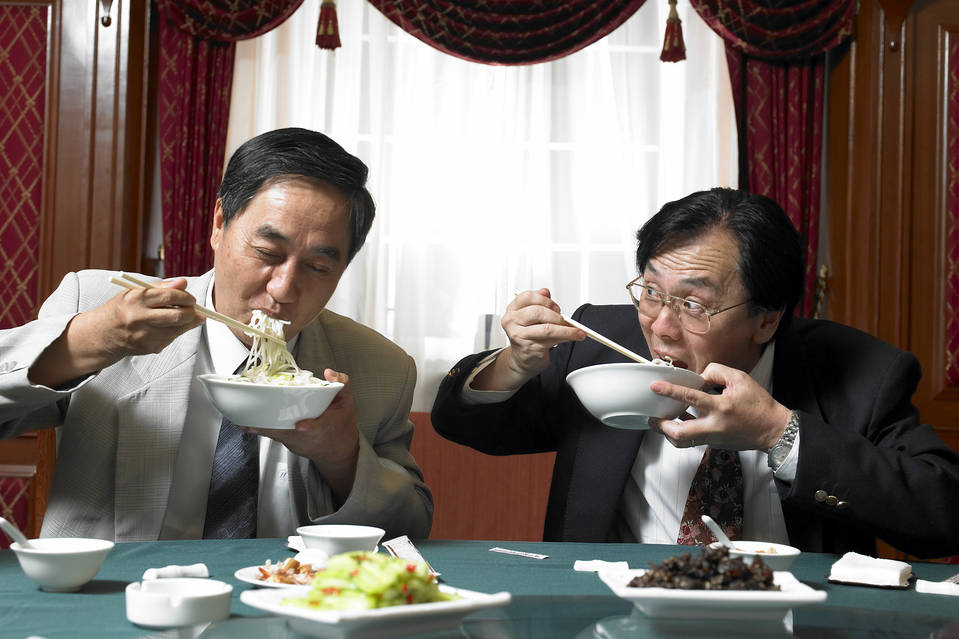Researchers found that when people see each other eat the same thing, they are quicker to negotiate agreements

Researchers found that when people see each other eat the same thing, it makes them more willing to trust their co-eaters with money and quicker to negotiate an agreement. PHOTO: GETTY IMAGES
If you want to click with a client, connect on a first date or close a big sale, it isn’t a bad idea to break bread with someone. But if you’re smart, you’ll order the same food as the other person.
In a series of four experiments, researchers at the University of Chicago found that when people see each other eat the same thing, it makes them more willing to trust their co-eaters with money and quicker to negotiate an agreement. The findings, published in a new paper, have implications for anyone who wants to win friends and influence people.
In the first experiment, 176 volunteers in a simulated investment game were assigned to be either investors or fund managers. Investors were given $3 and told that it would automatically double if they gave it to a fund manager—but the manager could return all, none or some of the windfall. When investors and managers sat together and ate the same type of candy—a variety chosen by the researchers—investors entrusted 29% more money to the managers than when the two parties ate different candy.
A second experiment was a simulated labor negotiation in which 124 volunteers were paired as representatives of management and labor. The rules allowed a limited number of wage bids and set out when a “strike” would be triggered. The pairs in each negotiation were given either the same type of food (say, three candies) or the opposite (one got the three candies, another got three salty snacks). Pairs in which both negotiators saw one another eat the same type of snacks came to an agreement almost twice as fast as negotiators that ate different types of snacks.
In a third experiment, a person was shown pitching a product—sometimes eating a candy bar, sometimes another food and sometimes nothing at all. Volunteers given the same candy bar tended to trust the person and the pitch more than did those given a different food.
And in a fourth experiment, people shown pairs of photos attributed more mutual trust to the people in the images when the pairs were eating the same food.
Taken together, these findings suggest that you can build trust in a prospective employer, new client or any other stranger not just by sharing food but by eating the same stuff. If you’re organizing a negotiation, a conference or a sales event, for instance, narrowing the food choices might increase the likelihood of greater trust arising.
In general, says Ayelet Fishbach, one of the researchers, “ ‘I’ll have the same’ is a great strategy,” but it is probably good enough merely to have something similar. She says her continuing research with Kaitlin Woolley has also found that it is better to have shared dishes, like one would at, say, a Chinese restaurant, and that saying “I’ll have the same” (or something similar) works when having beverages too.
“I think food is powerful,” says Dr. Fishbach, “because it is something that we put into our bodies and we need to trust it to do that.”
“A Recipe for Friendship: Similar Food Consumption Promotes Trust and Cooperation,” Kaitlin Woolley and Ayelet Fishbach, Journal of Consumer Psychology (June 25)




